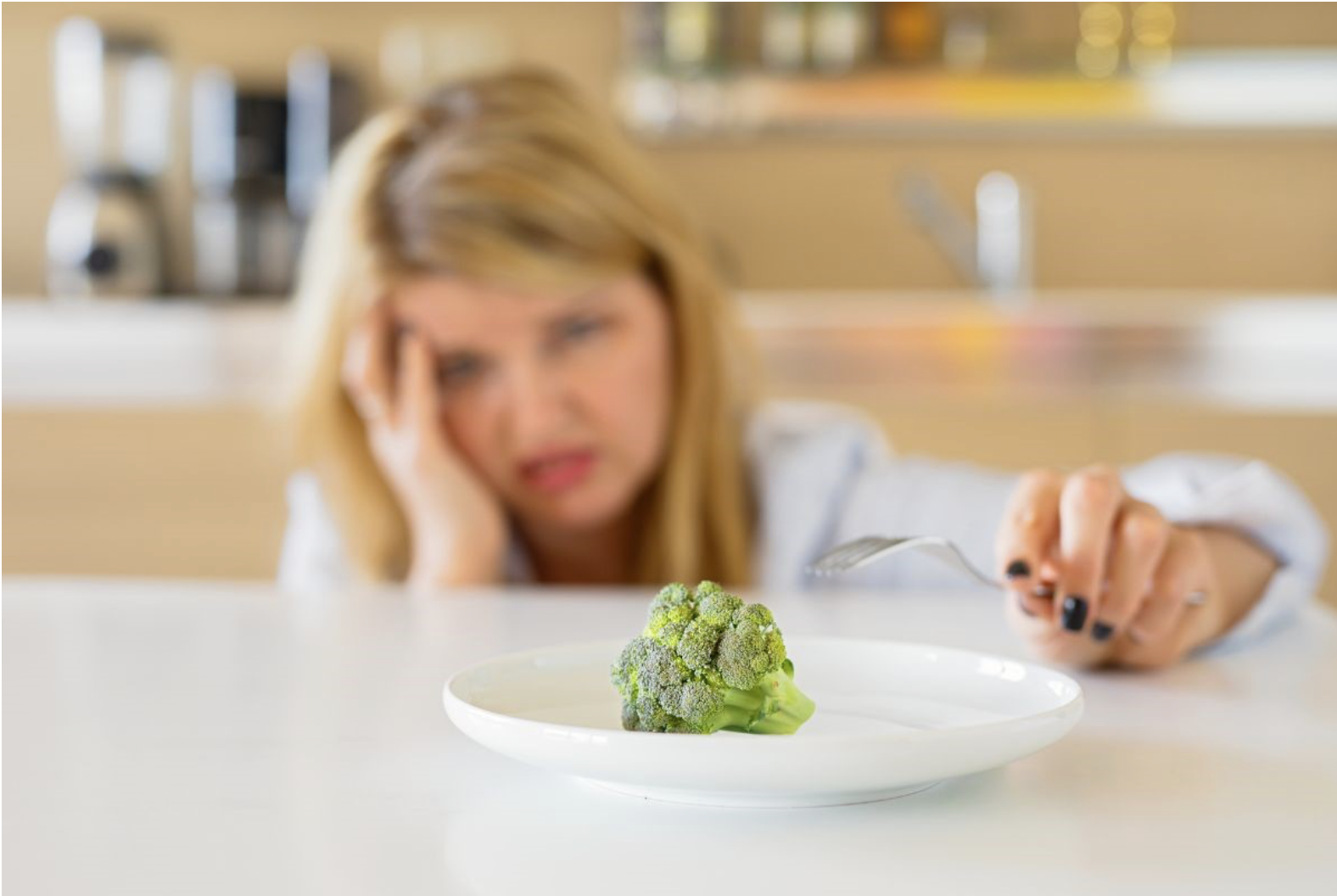

In the pursuit of better digestive health, many individuals turn to dieting as a quick fix. Whether it’s eliminating gluten, dairy, or following the latest fad diet, the intention is often to alleviate symptoms and improve overall well-being.
What if we told you that these seemingly harmless dietary changes could actually be making your digestive issues worse?
As Health At Every Size® (HAES) dietitians specializing in digestive health, we’ve witnessed firsthand the detrimental effects of restrictive eating patterns on gut health.
Let’s explore five ways dieting could be making your digestive problems worse.
One of the most significant risks of dieting for digestive health is the disruption of the gut microbiota.
Your gut is home to trillions of bacteria that play a crucial role in digestion, immune function, and overall health. Some foods feed this bacteria and some foods provide this bacteria. Diets that severely restrict certain food groups can upset this delicate balance, leading to dysbiosis—a condition characterized by an imbalance of gut bacteria. Dysbiosis is associated with various digestive issues, including bloating, gas, and irregular bowel movements.
Removing entire food groups from your diet can also deprive your body of essential nutrients needed for optimal digestion. For example, cutting out carbohydrates can lead to inadequate fiber intake, which is vital for maintaining healthy bowel movements and supporting gut health. Similarly, eliminating dairy products can result in calcium and vitamin D deficiencies, which are essential for bone health and may impact digestive function. Over time, nutrient deficiencies can exacerbate digestive symptoms and compromise overall well-being.
A side note: elimination diets are rarely necessary, nor do they have to always be followed strictly to provide the intended benefits. Alarmingly, many people falsely assume that these eliminations should be ongoing in order to maintain symptom relief. Used appropriately, elimination diets should always be temporary, short-term, and modified to fit each unique individual under the guidance of a qualified professional to minimize the risk of nutrient deficiencies.
The connection between the mind and the gut is undeniable. Stress and anxiety can trigger or exacerbate digestive issues like irritable bowel syndrome (IBS) and lead to symptoms like abdominal pain, cramping, and diarrhea. Unfortunately, the constant worry and anxiety that often comes with restrictive diets can create additional stress on the digestive system, perpetuating a cycle of discomfort and making symptoms worse.
Dieting often perpetuates food fears, rules, and restriction, contributing to the development or exacerbation of eating disorders and disordered eating. For example, orthorexia nervosa is an eating disorder characterized by an obsession with healthy eating and a rigid adherence to restrictive diets. In a similar way, Avoidant/Restrictive Food Intake Disorder (ARFID) involves an extreme aversion to certain foods or food groups, which can lead to significant nutritional deficiencies and digestive issues. By focusing solely on weight loss or symptom management, dieting can overlook the underlying emotional and psychological factors contributing to disordered eating patterns and digestive health problems.
Perhaps the most significant risk of dieting for digestive health is the tendency to mask underlying issues rather than addressing the root cause of symptoms. While restrictive diets may provide temporary relief from digestive discomfort, they often fail to address the underlying factors that are contributing to gut health issues in the first place. Instead of focusing on symptom management, it’s essential to conduct a comprehensive evaluation to identify potential triggers and develop a personalized treatment plan that addresses the root cause of digestive issues.
In conclusion, dieting can have serious consequences for digestive health, potentially exacerbating symptoms and compromising your overall health. As HAES dietitians specializing in digestive health, we advocate for a holistic approach that prioritizes nourishment, intuitive eating, and body acceptance. By tuning into your body’s cues, making peace with food, and cultivating a positive relationship with eating, you can support your digestive health from the inside out.
If you’re wondering how to know if it’s time to get support on your digestive health healing journey, read our recent blog 5 Signs It’s Time To Work On Your Digestive Health.
Ready to take the next step towards better digestive health? Our team of HAES®-aligned dietitians offer personalized 1:1 services to support you on your journey. Our root cause approach is here to help you achieve lasting wellness from the inside out. Click here to apply to work with us today!
Remember, true digestive health is about more than just what you eat—it’s about how you nourish your body, mind, and soul. Together, let’s embrace a gentler, more sustainable approach to wellness that honors your unique needs and experiences.

We are a group of dietitian specialists based in Oklahoma offering virtual nutrition therapy for digestive health and disordered eating recovery.
We love working with individuals who are ready to find relief from gastrointestinal (GI) symptoms and embrace a more positive relationship with food and their bodies.
Offering virtual nutrition counseling services in Oklahoma, Texas, West Virginia, and other select states.